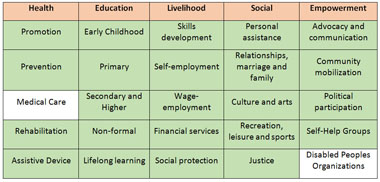The 3rd Asia-Pacific CBR Congress
Gender and Inclusiveness:
Experience of Centre for Disability in Development (CDD)
Mohammad Rezaul Alam
Coordinator
Centre for Disability in Development (CDD), Bangladesh
Introduction:
This paper portrays the experience and learning of the Gender and inclusiveness in the programmes and projects of Centre for Disability in Development (CDD).
The Centre for Disability in Development (CDD) is a not for profit organisation established in 1996 to develop a more inclusive society for persons with a disability. CDD's mission is to address this by simultaneously educating the community in how to be more inclusive whilst also enabling persons with a disability to participate in society by providing them with essential supports. In this way persons with disabilities can be given the same rights, freedoms, dignity and quality of life as everyone else.
In its long experience of working in the field of disability and inclusion, CDD learned that in most cases women with disabilities are grossly neglected and denied of their rights. Considering this fact, with a notion of positive discrimination CDD always gives emphasis on women’s participation in all of its programmes and projects.
The Context of Bangladesh: Situation of Women with Disabilities
The situation of women in Bangladesh is still far behind. However, there is no doubt that women’s empowerment is progressing rapidly. Unfortunately this is not the case for women with disabilities. They are doubly discriminated represented in different forms of exclusion, neglect and abuse. They are often out of development opportunities, decision making process, and socialization and are often victims of physical and emotional abuse without access to justice. At family level, women with disabilities are often denied of their health rights. Usually family members does not bother to take female family members with disabilities to the doctor or to hospital even in serious health condition. Their education rights are continuously violated as most of the cases they are kept out of education system.
Practices of CDD
CDD considers gender and inclusion issues in all of its projects and programs. CDD has covered several milestone in its journey towards gender inclusiveness. One big milestone was to finalize its own gender policy and gradually implementing the policy into the official structure. Another big milestone is assigning one female staff as gender focal person. Another bigger milestone is the establishment of complaint mechanism. This mechanism gives privileges to the staff members of CDD to approach the gender focal person and submit official complaint in case of gender violation. In its recruitment policy gender issue is addressed as following way: priority of recruitment – woman with disability, man with disability, woman and man. CDD also encourages its projects to organize staff development training on gender focus issues.
At partners level
As the main strength of CDD is its partner organization, CDD encourages its partners to develop and implement gender policy in their respective organizations. In several cases, CDD helped its partner organization to formulate gender policy and also organizes gender training for them.
Under different projects criteria has been set to include 40 to 50% women / girls with disabilities in all project initiatives form recruitment to training to beneficiary selection. CDD formed a number of women only self-help groups besides mixed groups. But in those groups’ at least 40% members are women with disabilities. This created a big opportunity for women with disabilities to participate in the group development process come forward with leadership.
Kajol Rekha, a spinal cord injured female was identified by a local partner NGO of CDD and she was included in a group under a project on disability inclusive disaster risk reduction implemented by CDD. Within a very short time she became the key spokesperson of the group and the community. She became involved with numerous advocacy initiatives to convince local government and the Union Disaster Management Committee to include disability issues in the DRR programme.
CDD has also initiated a new programme to work with readymade garments sector to convince the garments authority to include disabled persons in the garments factory. A strategy was taken by the programme to make the selected readymade garments inclusive. Under this, 2 designated person will be involved for this process to make the recruitment process inclusive (advertisement, interview, job description etc.) and assess the accessibility situation of the garments and recommend for arranging reasonable accommodation (e.g. place the physically challenged persons at ground floor, arrange flexible working hour).
Changes that happened as a result of different programmes initiated by CDD
For almost 20 years CDD is working in the field of disability. During this period CDD implemented a number of programmes and projects and experienced changes that happened in the lives of persons with disabilities, especially women with disabilities. Number of involvement of women and girls with disabilities have increased significantly. When CDD emerged into existence, it would have been merely impossible to find women and girls with disabilities involvement in education or livelihood sectors due to the hardcore conservativeness in the society. But now we have many examples where girls with disabilities are enrolled in education system and continuing their studies with new found confidence. We now have many examples of self-employment and wage employment of women with disabilities in different sectors. They are now getting involved in training, getting loans and starting small businesses. The biggest change that have happened in the lives of women with disabilities are that they are now emerging as leaders. There are a number of examples in the working areas of different partner organizations of CDD where women with disabilities are leading groups, doing advocacy with local government, in national level even in international level. As we previously mentioned about Kajor Rekha, she has now become an international figures in the disability movement in the field of disaster management.
Learning of CDD:
- • If women with disabilities are involved in advocacy, they can convince the target group more easily by demonstrating their ability which general community people think that does not exist at all
- • It is important to include male counterpart (husband, father, elder brother etc.) of women to attend gender and inclusion training which result women and girls with disabilities receive a lot of positive support from the family
- • Leadership training can help a women with disabilities to spread her wings like a butterfly emerges from a cocoon
Major Challenges
- • Families are usually to protective towards women and girls with disabilities which create the major barrier for them to be involved in the mainstream society and development
- • Education is a major challenge to include girls with disabilities in the system of mainstream education
- • The attitude and perception of the local community and local government towards women and girls with disabilities are still charity focused, they hardly believe that women and girls with disabilities can become contributive members in the society
- • Health issues of women with disabilities are grossly neglected as most of the cases family try to avoid spending money for them and try to address their simple to major health issues by keeping them in home
- • It is a general tendency of hiding existence of girls with disabilities from the community as they fear negative attitude of the community people towards the whole family and other social crisis they may face
- • It is very hard to convince family members to let go their disabled family members (especially women or girls) to mix with the general community
Conclusion
When CDD first took this venture, women were found very timid and afraid to raise their voices. But after receiving leadership and group development training provided by CDD and the practical experience they gathered working with the groups, they became more and more confident. Alongside the male group members they also started approaching different offices of local government. They now have the ability to access different services of local government and other offices. They also discuss on advocacy issues with government officials. Future women leadership are also coming out through this process. We are hopeful that an inclusive society will emerge in Bangladesh where women will play vital role as leaders.
CBR Matrix and CDD
CDD through its partner organization covers all five components and the shaded elements of CBR Matrix.
Slide 1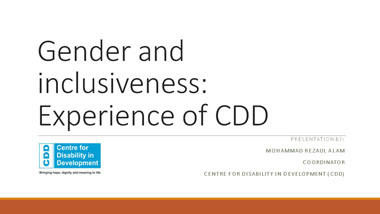 (Slide 1 text)
(Slide 1 text)
Slide 2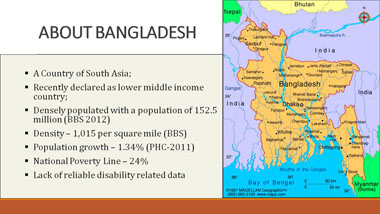 (Slide 2 text)
(Slide 2 text)
Slide 3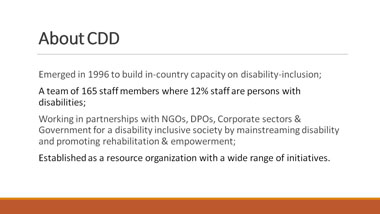 (Slide 3 text)
(Slide 3 text)
Slide 4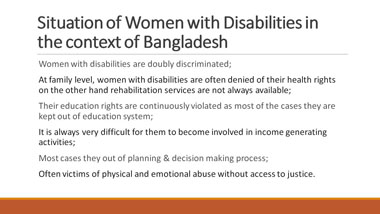 (Slide 4 text)
(Slide 4 text)
Slide 5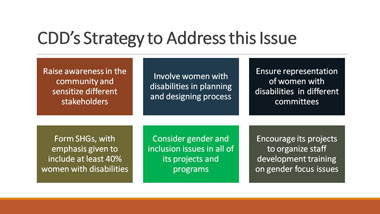 (Slide 5 text)
(Slide 5 text)
Slide 6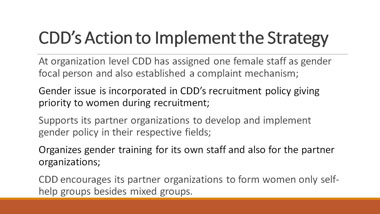 (Slide 6 text)
(Slide 6 text)
Slide 7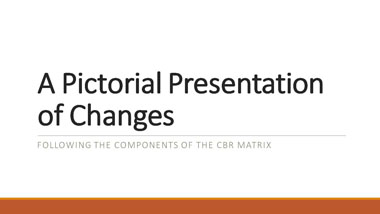 (Slide 7 text)
(Slide 7 text)
Slide 8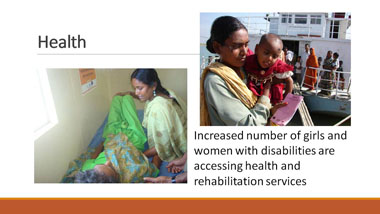 (Slide 8 text)
(Slide 8 text)
Slide 9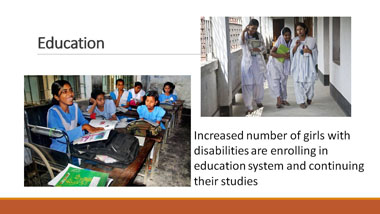 (Slide 9 text)
(Slide 9 text)
Slide 10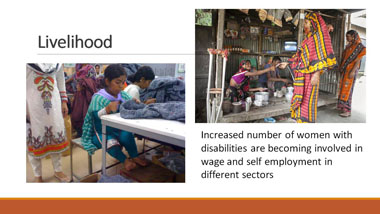 (Slide 10 text)
(Slide 10 text)
Slide 11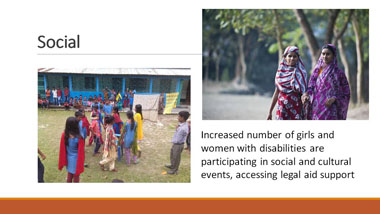 (Slide 11 text)
(Slide 11 text)
Slide 12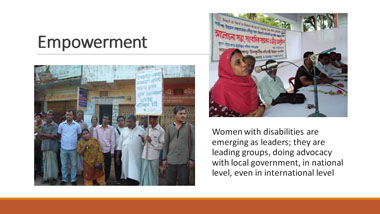 (Slide 12 text)
(Slide 12 text)
Slide 13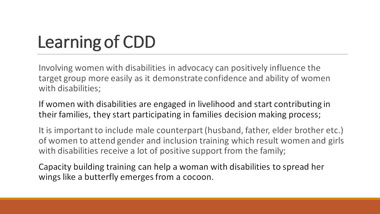 (Slide 13 text)
(Slide 13 text)
Slide 14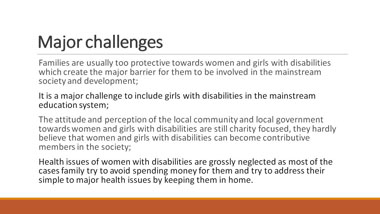 (Slide 14 text)
(Slide 14 text)
Slide 15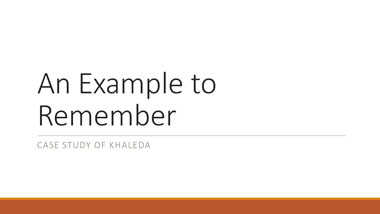 (Slide 15 text)
(Slide 15 text)
Slide 16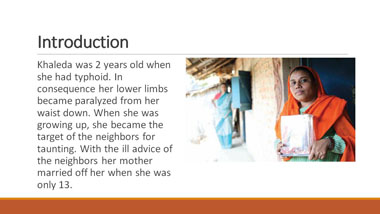 (Slide 16 text)
(Slide 16 text)
Slide 17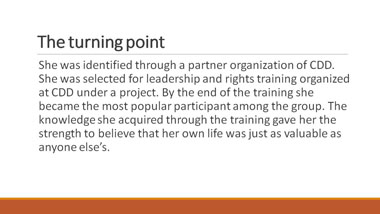 (Slide 17 text)
(Slide 17 text)
Slide 18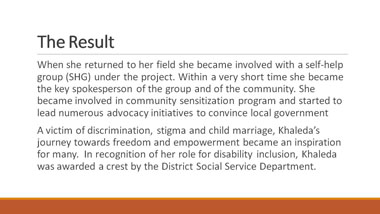 (Slide 18 text)
(Slide 18 text)
Slide 19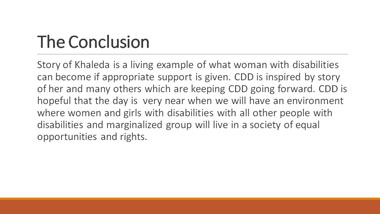 (Slide 19 text)
(Slide 19 text)
Slide 20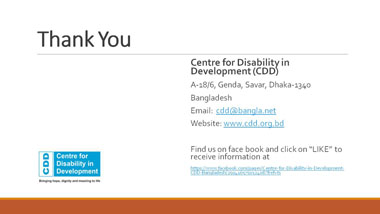 (Slide 20 text)
(Slide 20 text)

